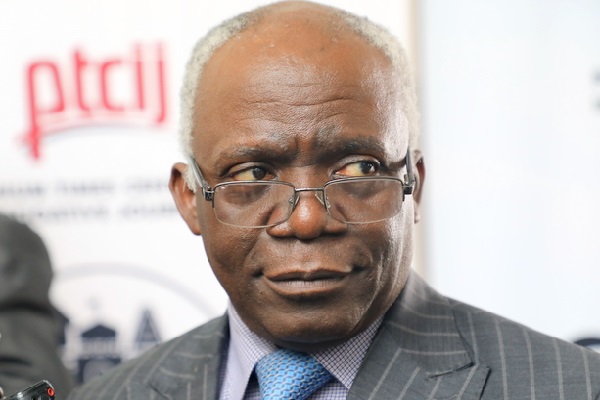Femi Falana’s defense of the Economic and Financial Crimes Commission (EFCC) in response to Dr. Olisa Agbakoba’s claim about its legality raises several contradictions and shortcomings. While Falana attempts to paint the EFCC as constitutionally valid, his position undermines key principles of federalism and fails to address the agency’s perceived overreach. The nature of Falana’s argument also reveals selective use of judicial rulings that gloss over essential nuances, weakening his stance on the EFCC’s legality.
One of the key issues with Falana’s argument is his dismissal of federalism concerns. Federalism is a core component of the Nigerian Constitution, which recognizes the autonomy of individual states in governance. Dr. Agbakoba’s critique of the EFCC hinges on this principle, arguing that the centralization of anti-corruption enforcement violates state sovereignty. Falana, however, overlooks this critical point. He defends the EFCC by asserting that the agency is supported by constitutional provisions, such as Section 15(5) of the 1999 Constitution, which mandates the state to abolish corrupt practices. But this broad interpretation of the law runs the risk of empowering the EFCC to interfere with state governments, eroding the delicate balance of power between the federal and state levels.
Falana’s argument also suffers from internal inconsistency. On the one hand, he advocates for the authority of the EFCC to operate nationwide and prosecute corruption at all levels of government. On the other, he professes support for federalism, which emphasizes decentralization and the autonomy of states. This contradictory stance casts doubt on his commitment to the principle of federalism and raises concerns about his selective application of constitutional ideals. The EFCC, while vital in combatting corruption, operates in a manner that raises legitimate questions about federal overreach. Falana’s failure to fully acknowledge these concerns undermines his broader argument.
Another issue with Falana’s defense is his selective citation of Supreme Court rulings to bolster the EFCC’s legality. He references past cases like **Attorney-General of Ondo State v Attorney-General of the Federation**, where the Supreme Court upheld the constitutional validity of anti-corruption bodies like the ICPC. However, this precedent does not directly translate to the EFCC’s operations, as the ICPC’s mandate and scope differ from the EFCC’s broader and more intrusive powers. The absence of a nuanced discussion on how these rulings apply to the unique challenges posed by the EFCC weakens Falana’s argument. Instead of addressing the specific nature of the EFCC’s overreach into state affairs, Falana uses broad rulings to justify its existence, ignoring the complexities involved in balancing federal powers with state sovereignty.
Moreover, Falana’s failure to substantiate his claim that no court has ever declared the EFCC unconstitutional highlights a gap in his defense. While it may be true that no legal ruling has annulled the EFCC Act, this does not automatically legitimize the agency’s actions, especially in cases where states have pushed back against federal interference. Falana overlooks the fact that several state governments and public officials have raised concerns about the EFCC’s authority, particularly regarding its involvement in state financial matters. The ongoing debate about the legality of the EFCC underscores the need for clarity, and Falana’s simplistic dismissal of these concerns does not help to resolve the issue.
Finally, Falana’s call for the National Assembly to amend the Constitution and formally entrench the EFCC and ICPC only further complicates his position. While this move may provide legal backing for the agencies’ existence, it does not address the fundamental issues of federal overreach and accountability. Instead of offering a comprehensive solution, Falana’s proposal risks entrenching an imbalance of power between the federal government and the states, potentially exacerbating tensions between different levels of governance.
In conclusion, Femi Falana’s defense of the EFCC is riddled with contradictions and selective reasoning. His argument overlooks the legitimate concerns of federalism, fails to engage with the nuances of judicial rulings, and sidesteps the ongoing debate about the agency’s role in state affairs. While the fight against corruption is undoubtedly important, it must not come at the expense of state sovereignty or constitutional balance. Falana’s inconsistent defense does little to resolve these tensions and raises more questions than it answers about the future of anti-corruption efforts in Nigeria.




